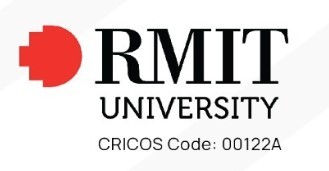
Master of Public Policy


Overview
Duration
FULL-TIME 2 YEARS
FULL-TIME 2 YEARS
Scholarship
YES
YES
Fee
AU$36,480
AU$36,480
Intake
FEBRUARY, JULY
FEBRUARY, JULY
Overview
- With the Master of Public Policy, you will learn how you can contribute to positive policy outcomes, and participate in debates regarding power, politics and complexity.
- Taught by leading policy academics and industry professionals, the course reflects the latest debates, issues and approaches to global, national and local policymaking and development.
- You'll explore and develop frameworks for issues, such as:
- evidence-based policy and practice
- global governance
- equity
- public sector reform.
Inquire Now
Career
- As a graduate, you will be able to make sense of critical issues in society, confidently argue about the nature of policy problems, and engage in policy development and implementation practices that contribute to positive policy outcomes.
- Graduates often work as policymakers, advisors, managers and advocates.
- You’ll be able to work independently and collaboratively in teams as a lifelong learner and reflective practitioner. You will have gained skills that are transferable and relevant in a global context. These skills relate to research, policy analysis, professional communication and problem-solving.
- Graduates are highly employable in human services organisations, community-based agencies, various levels of government and, increasingly, in corporate and private enterprise.
- Relevant organisations include:
- federal, state and local government
- trade unions
- large community sector organisations (such as the Salvation Army, the Brotherhood of St Laurence and the Victorian Council of Social Service)
- specialist research and policy centres
- other organisations such as the Council to Homeless Persons and the Youth Affairs Council of Victoria Inc.
Entry requirement
- To study this course you will need to complete one of the following English proficiency tests:
- IELTS (Academic): minimum overall band of 6.5 (with no individual band below 6.0)
- TOEFL (Internet Based Test - IBT): minimum overall score of 79 (with minimum of 13 in Reading, 12 in Listening, 18 in Speaking and 21 in Writing)
- Pearson Test of English (Academic) (PTE (A)): minimum score of 58 (with no communication band less than 50)
- Cambridge English: Advanced (CAE): minimum of 176 with no less than 169 in any component.
Popular Courses
Start your journey with landmark today!
Find your perfect course
Answer a few questions and
our course matcher will do the rest
Head Office
Level 5, IT Plaza
Kamaladi, Kathmandu
Tel: +977 14542781, 9845566225
E-mail: info@landmarkedu.com
Kamaladi, Kathmandu
Tel: +977 14542781, 9845566225
E-mail: info@landmarkedu.com
Sydney office
Suite 1 Level 1,
46 Macquarie Street,
Parramatta, NSW
Tel: +61 415 122 814
46 Macquarie Street,
Parramatta, NSW
Tel: +61 415 122 814
Branch office
Sahidchowk, Chitwan
Tel: 056-590825
Tel: 056-590825
Mahendrachowk, Biratnagar
Tel: 021-590828
Tel: 021-590828
Level 2, Milanchowk, Butwal, Rupandehi
Tel: 977-71-591694
Tel: 977-71-591694
© Landmark Education. All rights reserved.


